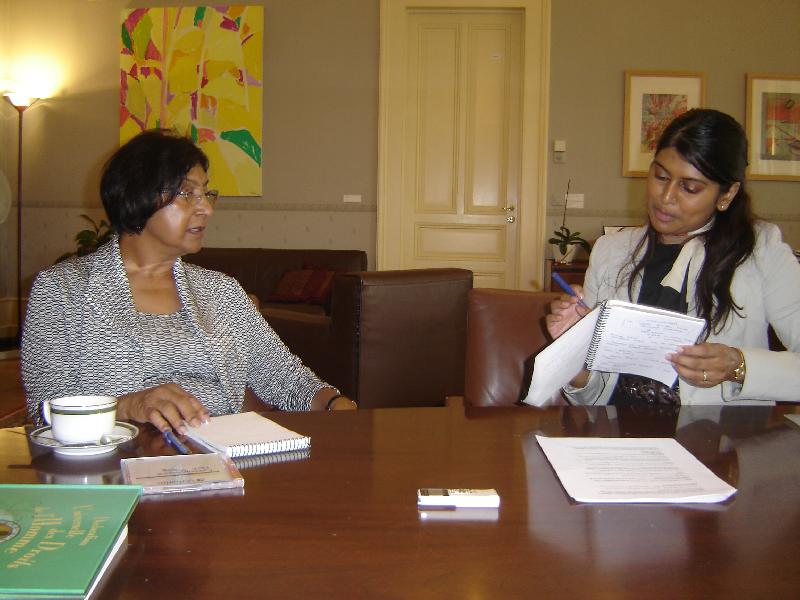
Research Associate in the Department of English, Rhodes, Dr Sam Naidu, has published her biography of Navanethem ‘Navi’ Pillay entitled, Navi Pillay: Realising Human Rights for All. The book, published by Arcadia Books Ltd, was launched on 1 September in London as part of the publishing house’s BlackAmber Inspirations Series which aims at providing black role models from varied fields and backgrounds for a diverse audience.
Navi Pillay, who is the current United Nations High Commissioner for Human Rights, has had a remarkable career as a Human Rights advocate. Born in 1941, she challenged and overcame the obstacles of apartheid South Africa by graduating with a law degree and, a staunch anti-apartheid activist, in 1967 was the first black woman in the country to set up a law practice to defend anti-apartheid activists. In 1973 she obtained legal representation for prisoners at Robben Island and, in 1986, co-founded the Advice Desk for Abused Women (now Advice Desk for the Abused). In 1995, under a democratically-elected government, Pillay was recommended by former president, Nelson Mandela, as the first black female judge in the Supreme Court. She joined the International Tribunal for Rwanda in the same year and in 1999 was promoted as the Tribunal’s Judge President. She then moved to the International Criminal Court in Hague, after which, in 2008, she was appointed United Nations High Commissioner for Human Rights.
Pillay was born in the same Durban Indian community as Dr Naidu and her life experiences and human rights work resonated with Dr Naidu. Her selection of Pillay was thus personal. “I chose Navi Pillay as a subject because her life story is truly remarkable, and because she is a black South African woman. In the South African context (as well as globally) she is a super achiever [and] one of South Africa’s most successful, awe-inspiring, selfless women. Her greatest achievements are the result of her ability and courage when it came to dealing with the apartheid regime’s legal/justice system. By lobbying to have unjust laws changed, she has made a lasting impact on human rights law in South Africa,” explains Dr Naidu.
The biography took just over a year to research and write and Dr Naidu had to lecture part-time at Brunel University, UK, where she is a lecturer, in order to achieve this. She travelled to the United Nations headquarters in Geneva, Switzerland, in July 2009 to interview Pillay and various colleagues at the Office of the High Commissioner for Human Rights. She also interviewed family, friends and former colleagues of Pillay in Durban where she was granted access to her personal archives. Her biggest challenge, she admits “was keeping the language and register simple so that the text was widely accessible”.
But the importance of her subject and substance of her project made it worth the effort.
“I see Navi as someone who represents all the unrealised ambitions of generations of women in Durban, in South Africa, in the world. Hopefully South African readers will see that despite all the constraints of the apartheid era, someone like Navi was able to achieve, triumph, succeed, not just personally, but for her community, her fellow South Africans,” says Dr Naidu.
Right: Sam Naidu interviews Navi Pillay at the United Nations in Geneva. Pic: supplied.
